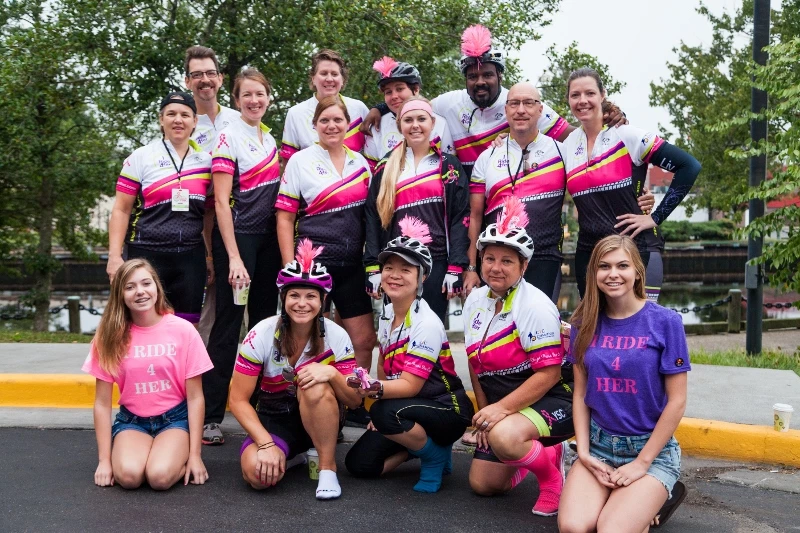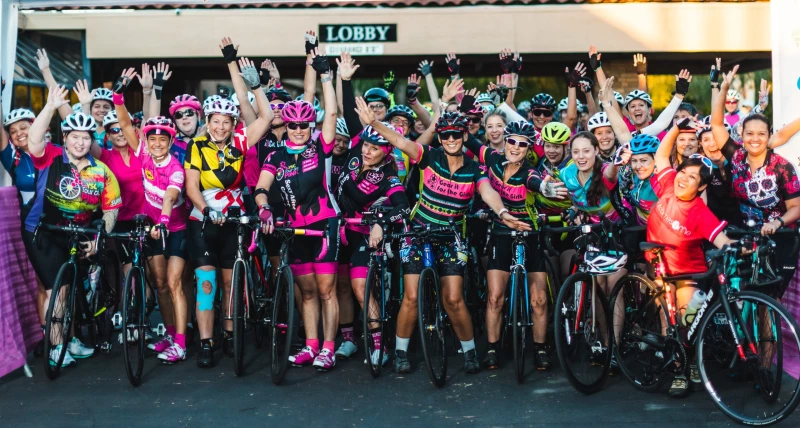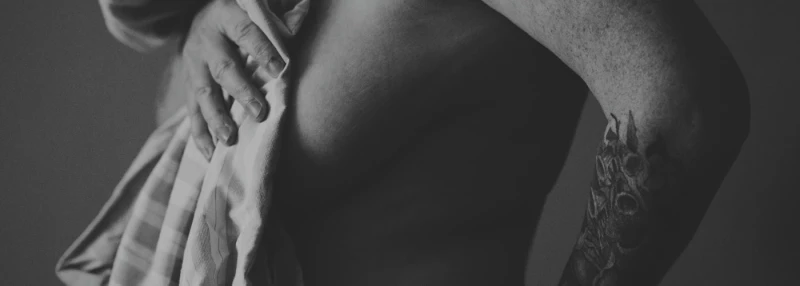Breast cancer not only impacts the patient, but also the co-survivors (partners, spouses, siblings, parents and friends). In addition to the 12 profiles of young women affected by breast cancer, we also wanted to share the true impact of breast cancer from a co-survivor’s perspective.
Tell me a little bit about your girlfriend Erin’s diagnosis:
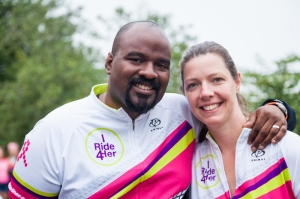
In April 2009, my girlfriend Erin was diagnosed with invasive and In Situ Ductal Carcinoma in her left breast and a benign papilloma in her right breast. She was 32.
Erin lost her mom to breast cancer nine months before she was diagnosed. Even though there is a strong history of breast cancer in her family (her mom, three aunts and a grandmother), Erin is BRCA negative. She could have opted for a lumpectomy but given her family history, Erin decided to have a bilateral mastectomy.
Because of the location and size of her tumor, she was a candidate for a nipple sparing mastectomy with immediate reconstruction and tissue expanders. We actually found out about the procedure and the surgeons through the YSC Community Boards.
None of the initial doctors mentioned it until we started asking and they confirmed she was a good candidate.
The surgeons also did a sentinel node biopsy and confirmed that the cancer hadn’t spread to the lymph nodes. The surgery was in June and Erin moved into my house post surgery so I could help with her care. In October, she had a follow-up surgery to replace the tissue expanders. This was followed by hormone treatment with Tamoxifen that continues to this day.
We were lucky in that while we researched fertility preservation, the nature of Erin’s cancer and her Oncotype DX score were low. Because of the low score, chemotherapy would not provide much benefit, so she opted not to do it. We also didn’t need to do fertility preservation.
What was the hardest thing as a co-survivor?
The hardest part of being a co-survivor was the feeling of helplessness. You want to protect your loved ones from everything. I had to come to grips with the fact that I couldn’t protect Erin from cancer, but I could help her with the fight in lots of different ways. I was a shoulder, a sounding board, note taker at appointments, the guy who makes the doctors explain things fully and doesn’t let them just rush out of the room and – above all else – the researcher. I threw myself into research mode. (That’s how we found the YSC website and Community Boards.) I felt that by researching and learning everything I could about her type of cancer and treatment options, I was giving her the tools she needed to fight. And I was fighting it right alongside her. I felt less helpless and more like an active participant.
The thing that’s tough is you kind of stop taking care of yourself. You find you are trying to be strong for your partner 24/7 but you are a wreck yourself and don’t necessarily realize it. The emotions would often catch up with me when I was alone. I’d be driving alone in the car and not realize I was crying. It was tough for a 6’ 4” rugby player to admit, but I needed help. I had a great support network of friends and family. I just needed to open up. I wouldn’t have been able to support Erin through her cancer without the help I got from friends and family.
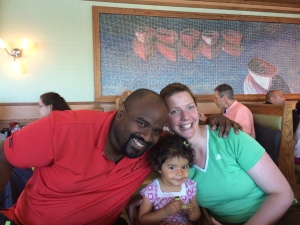
What were resources that you used to help support yourself and your wife?
The YSC Community Boards were a huge resource for me. I’m a nerd so my first instinct is to research. We found out about nipple sparing mastectomies and recommendations for surgeons through the YSC. Even though I wasn’t the one with cancer, the women on the site were really welcoming and helped me tremendously.
What resources were missing, that you wish had existed?
There weren’t really other young spouses/partners I could easily find or talk to at the time. There is a more conscious effort to assist co-survivors now.
What has happened since her initial diagnosis?
Erin and I got married in 2010, about a year after her last surgery. The oncologist wanted Erin on Tamoxifen for two years before we tried to have kids. At two years, Erin stopped Tamoxifen and we waited three months to ensure that it was out of her system. We were really lucky that Erin got pregnant right away. Our daughter Dalia was born three years, eight months and one day after Erin’s diagnosis.
Tell me about Tour de Pink and what drove you to participate?
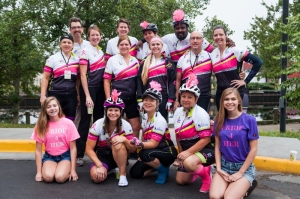
Erin and I participated in our first Tour de Pink® (TdP) four years ago as a way to give back to the organization that helped us so much. I’ve ridden in her honor every year since. Our TdP team, “I Ride 4 Her,” has raised more than $90,000 during the past four years. TdP is really a family. We have this terrible disease in common that’s affected us all, but we’ve all come out on the other side of it stronger and eager to share our experiences with each other. My wife and teammates inspire me every day. This year, Erin is riding all three days for the first time in celebration of her five-year Cancerversary.
What words of advice do you have for other spouses/co-survivors?
You can’t take care of your partner if you aren’t taking care of yourself; eventually you’ll crack. Make the time to help yourself. You need your own support network so that you are strong enough to support your partner.
